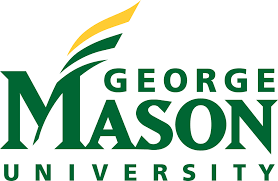George Mason University: Two hackathons at Mason inspire students to dream big
There’s no shortage of creativity at George Mason University, and from March 11-13, students will accelerate innovation at the university’s annual hackathon. This year, two events will take place simultaneously: PatriotHacks, the signature hackathon focused on software programming, and HackOverFlow, a new hackathon with a focus on hardware engineering.
“PatriotHacks…has been drawing hundreds of students to a 36-hour hackathon for the last three years,” said Kammy Sanghera, executive director of Mason’s Institute for Digital InnovAtion (IDIA). “With the addition of HackOverFlow, we will be able to extend the opportunity to students who want to create prototypes or work on hardware solutions.”
A black mechanical robotic spider with colorful electrical wires is presented as an example of a hardware project students might create at the HackOverFlow hackathon.
“Robot Spider.” An example of a hardware project students could create at HackOverFlow.
That could include robotics, wearable devices, or anything with a mechanical component, said Sai Srivatsav Gutala, a member of HackOverFlow’s presidential committee.
“My long-term vision for HackOverFlow is to have students come in with crazy ideas, no matter how big, no matter how impossible the world may think they are,” said Gutala, a senior studying electrical engineering.
The hackathons, hosted by IDIA’s TechConnect DC, will be held in Horizon Hall. College students of any major, from any institution, and recent graduates, are welcome to register individually or in teams.
PatriotHacks will also be in hybrid format this year, with online and in-person participation.
Both events are about fostering innovation and solving challenges, the students said, but you don’t have to be an expert to join.
A headshot of Jared Ponmakha, who is smiling at the camera, wearing a grey Patagonia sweatshirt.
Jared Ponmakha. Photo provided.
“If you’ve ever had an idea for a project but didn’t know how or where to start, this event is the catalyst to make your idea into reality,” said Jared Ponmakha, a senior studying computer science, and one of PatriotHacks’ directors. “Students benefit by being given the technical resources and mentorships to idealize their projects fully.”
In addition to the hackathon itself, there will be workshops, talks and social events, the students said, including a resume-building workshop and a Mario Kart tournament.
Participating also has career advantages, Gutala said, mentioning that sponsors and representatives from tech companies will be in attendance.
“Submitting projects gives students the ability to show the sponsors what they learned at the event,” Ponmakha said. “[The hackathons] give more personable job opportunities than a standard career fair.”
“It is a professional development opportunity for our students where they are not bound by grading criteria,” Sanghera said. “It allows them to think outside the box, be creative, and be confident to ask questions as they seek solutions for local, regional, or global issues.”
Prizes are another incentive.
“We offer 10 tracks to earn prizes, including ‘Most Likely to be a Startup’ to ‘Best Hardware Hack,’” said Ponmakha. “Prizes include fast tracks to internships and even a hacker goodie bag.”
The leadership team from both hackathons said they’re excited for what’s the come.
“There’s no greater feeling than working on a product you’ve been pouring your sweat and tears into,” Gutala said. “That happiness inspires us to give more opportunity to students so they can work on problems and create solutions that could be used in the real world.”

